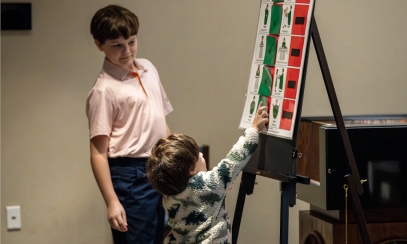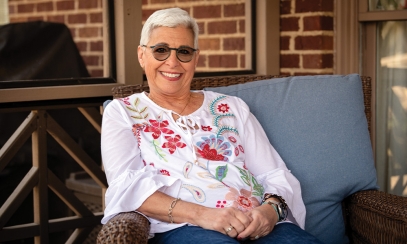
Redemptive Suffering Through the Eyes of a Nurse
In May 2012, my husband of 39 years came home from work and shared that the wife of a friend of ours had been diagnosed with very advanced cancer involving both her pancreas and liver. During her time in the hospital, Mary had been administered medication to help control her pain. After sleeping for 15 hours straight as a result of the medicine, her husband of over 40 years, Mark, became irate. He felt as if the short time he had left with his beloved wife had been made shorter still. He ordered the health professionals not to give her any more medicine without first discussing it with him. He soon thereafter took her home under hospice care with her refusing to return for any additional treatment.
In May 2012, my husband of 39 years came home from work and shared that the wife of a friend of ours had been diagnosed with very advanced cancer involving both her pancreas and liver. During her time in the hospital, Mary had been administered medication to help control her pain. After sleeping for 15 hours straight as a result of the medicine, her husband of over 40 years, Mark, became irate. He felt as if the short time he had left with his beloved wife had been made shorter still. He ordered the health professionals not to give her any more medicine without first discussing it with him. He soon thereafter took her home under hospice care with her refusing to return for any additional treatment.
I didn't even know if Mary or Mark were Catholic, but I was prompted, almost pushed, by the Holy Spirit to visit them. As a nurse, I rarely prayed with my patients, but I asked anyway. We joined hands, and I led the Lord’s Prayer only to discover that both barely knew the words. A chill ran down my spine as I asked, “Mary, have you been baptized?” Learning that she had not led to a gracious military chaplain coming to their home and administering the sacrament of baptism.
Over the next six months until Mary’s death, I observed the great suffering of this late middle-age couple who had married in their youth and who were still greatly in love. As the disease progressed, however, she continued to refuse pain medication, even to the point of spitting out doses.
At one point, she was unable to focus her eyes, had no palpable radial pulses, and was suffering from severe edema. The hospice nurse offered morphine, but Mark honored his wife’s wishes by declining the pain relief.
Mary’s condition became ever more dire, and after having refused the morphine once again for his wife, he came to me saying that if Mary continued to hold on, he would allow the pain relief. I expressed to him that he was wanting to alleviate his suffering, not hers. “You will hurt your soul,” I told him. For all intents and purposes, Mary should have been dead. People don’t generally live without peripheral pulses. If I had to guess, I believe Mary was waiting to die until Mark’s sister, Suzie, could arrive. Less than 24 hours after Suzie arrived to comfort her only brother, Mary’s breathing changed. Mark scooped up his dying wife in his arms and looked into her eyes. Now able to focus, Mary looked back with a knowing and loving look. Their eyes locked, Mary took her last breath and died in Mark’s arms. Mary’s death was heroic on her part, for she held on to life until the person she knew could comfort her husband had arrived. Through the experience of this suffering, Mark experienced God in a mystical way. “On a personal level, I do believe that all suffering, whether one means to or not, is added to our Savior’s suffering for all of us.”
Was Mary uniting her suffering with Christ’s passion and offering this for Mark? I cannot know, but what we do know from Pope St. John Paul II’s apostolic letter Salvifici Doloris is that “human suffering united to the redemptive sufferings of Christ opens the way to the victory of salvific powers.” And that “those who share in the sufferings of Christ preserve in their own sufferings a very special particle of the infinite treasure of the world’s redemption, and can share this treasure with others.” (SD27)
Diana Ruzicka is a wife, mother, grandmother and a retired Army Colonel who served in the Army Nurse Corps for over 25 years. Following retirement, she obtained a Masters in Theology from Catholic Distance University. She currently serves as the Secretary for the Diocese of Birmingham in Alabama Council of Catholic Nurses (DBACCN) and Secretary General for the International Catholic Committee of Nurses and Medico-Social Assistants (CICIAMS).



